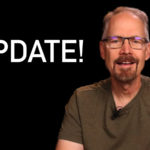The Bible portrays John the Baptist as the forerunner par excellence. John’s forerunner calling was centered on influencing culture by seeing lives and families changed, preparing them to meet their Messiah (Luke 1:16–17). How then did John seek to accomplish his calling? A brief overview of John’s ministry reveals three important characteristics that ought to govern any forerunner.
First, John understood the times in which he lived. He was familiar with the wayward hearts of the people, the evil in government, and the hypocrisy of religious leaders (Luke 3:7–8, 18–20; Matt. 3:7). Also, he understood that God had called him to confront each of these aspects of culture. Moreover, he knew that he was to proclaim that the Messiah was about to take center stage. To be effective forerunners today, we too must discern what is taking place in our culture, address it, and understand what the Bible says about the days in which we are living.
Second, John warned the people of the serious nature of their situation. John declared, “Even now the ax of God’s judgment is poised, ready to sever the roots of the trees. Yes, every tree that does not produce good fruit will be chopped down and thrown into the fire,” and, “Someone is coming soon who is greater than I am … He is ready to separate the chaff from the wheat with his winnowing fork. Then he will clean up the threshing area, gathering the wheat into his barn but burning the chaff with never-ending fire” (Matt. 3:10–12, NLT). Warning others about the consequences of meeting a holy God with an unrepentant heart is foundational to any forerunner calling. In our current Christian environment, such an approach is often viewed as extreme, unloving, and unnecessary, but it is this very message that frees the most people and bears lasting fruit.
Third, John helped people respond in faith. It is one thing to understand cultural issues and to warn people about coming difficulty; it is quite another to show people the way forward. Yet John did this too by specifically explaining what it looks like to turn to God in repentance and be saved from the coming judgment (Luke 3:10–14, NLT). As an act of faith, he told the general population to forsake self-centeredness and greed by sharing their food and clothes with others. When Roman soldiers came under conviction of sin, John told them, “Don’t extort money or make false accusations. And be content with your pay.” Similarly, he told the tax collectors to forsake corruption by telling them to “collect no more taxes than the government requires.” Providing people with hope by helping them embrace God’s will and ways is also a foundational characteristic of an effective forerunner.
John’s ministry serves as a model for today’s forerunners. An understanding of the culture and a warning for people while challenging them to turn from sin and turn to God are fundamental to any forerunner calling.
This article comes from Heart of a Forerunner: How to Be a Relevant and Influential Voice in a Wayward Nation

Download your free copy here.
Free Downloads
Share...
No works available
Unless otherwise noted, all Scripture quotations are taken from Holy Bible, New Living Translation, copyright © 1996, 2004, 2015 by Tyndale House Foundation. Used by permission of Tyndale House Publishers, Inc., Carol Stream, Illinois 60188. All rights reserved. Biblegateway.com.








